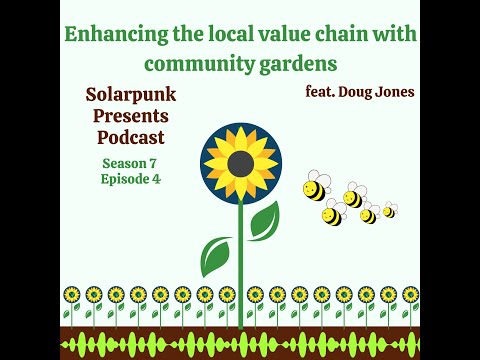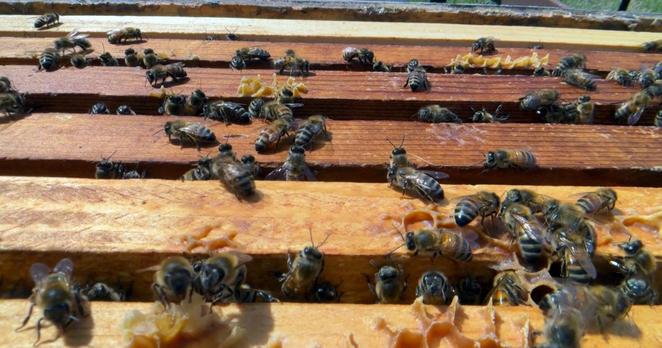Africa: South Africa As G20 Leader Can Take Action On Africa's Food Supply - 4 Ways to Make a Difference: [The Conversation Africa] South Africa, the only African country that is a member of the G20, holds the presidency of the grouping until the end of November 2025. During this time, it could help drive the African continent's food security agenda. http://newsfeed.facilit8.network/TK1nkh #SouthAfrica #G20 #FoodSecurity #Africa #FoodSupply
Recent searches
Search options
#foodsecurity
An explosive whistleblowing memo from an anonymous group of food industry executives has warned the sector is heading for an economic disaster bigger than the pandemic, with companies’ resilience planning based on “wishful thinking” and “false reassurances” to investors.
#FoodSecurity #ClimateEmergency #Farming #Agriculture #FoodIndustry
7.4: Enhancing the local values chain with community gardens feat. Doug Jones
In this episode, Ariel interviews Doug Jones from Waterloo Region Community Garden Network, and he discusses about how the Network was started, what it does, and the benefits of gardening for the health and wellbeing not only for you but for your entire community. We discuss gleaning, food insecurity, access to land, and much more; this is an episode you’re going to want to listen to, especially if rising cost of food and food security are concerns for you these days.
I (Ariel) have included some links to the local organizations he mentions, as well as some that expand on some of the topics we discussed, which you can check out in the YouTube description or on our blog.
#SolarPunk #SolarpunkPresentsPodcast #podcast #food #FoodProduction #LandAccess #CommunityGardens #CommunityGardening #FoodSecurity #Ontario #Canada #RegionOfWaterloo
"Cuts of 30 to 70% are rumored at USDA next week. NIH & NSF funding is being destroyed & the agencies themselves facing cuts.
About 3,500 nonfederal entomologists depend on these agencies. We'rerisking research that protects #ecosystems & #foodsecurity."
It's difficult to keep up with all the atrocities, but we amplify the gravity of the losing these experts, the firings, existential threats... of the #TrumpMusk admin.
#DOGE #Firings #Science #USDA #NIH #NSF #USPol https://www.govexec.com/management/2025/04/some-usda-rif-plans-take-shape-department-warns-employees-major-cuts/404247/
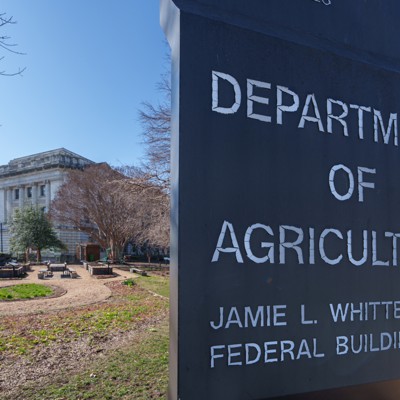
"Microplastics are now a ubiquitous part of our daily physical reality. They suffuse our #air, our #soil, the #food we eat and the #water we drink. They’re being detected everywhere, from Antarctic sea ice to human brains. A new #study published reveals how #microplastics hinder #photosynthesis across a wide range of plant species—including crucial food #crops." https://www.scientificamerican.com/article/microplastic-pollution-is-messing-with-photosynthesis-in-plants/
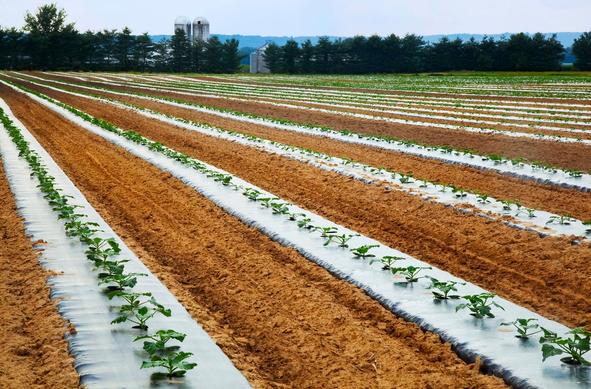
Access to a healthy diet is a basic human need. Poverty lines based on the cost of such #diets show that 2.3-2.9 billion people were poor in 2022 – vs 650 million who lived in extreme #poverty according to the World Bank's conventional poverty line: doi.org/10.1016/j.fo... #foodsecurity #nutrition
Redirecting
"There are multiple reasons for why food prices are on the rise. There are major similarities between the FAO food price index and energy prices. ...Transportation costs have increased a lot, which have two consequences. One is simply that costs increase, the other, equally important, is that competition decreases... More than free trade policies, the low cost of transportation has been the main engine for the economic globalization.
Africa: We Studied Smallholder Farming in Three African Countries for 10 Years - Why Profitable Irrigation Is Key: [The Conversation Africa] The world has to feed a growing population with the same area of land and less water. Irrigation is key to managing this problem. A 10-year project called Transforming Irrigation in Southern Africa focused on capacity constraints on schemes in… http://newsfeed.facilit8.network/TK0S78 #Irrigation #SmallholderFarming #SustainableAgriculture #AfricaAgriculture #FoodSecurity
If we want to slow the waste of food, our governments can charge fines on the packaging of produce.
#OrganicGardening Soil #Inoculants - Benefits Of Using A Legume Inoculant
By Heather Rhoades
May 18, 2021
"Peas, beans, and other legumes are well known to help fix nitrogen into the soil. This not only helps the peas and beans grow but can help other plants later grow in that same spot. What many people don't know is that a significant amount of nitrogen fixing by peas and beans happens only when a special legume inoculant has been added to the soil.
"Using pea and bean inoculants is simple. First, purchase your legume inoculant from your local nursery or a reputable online gardening website. Once you have your garden soil inoculant, plant your peas or beans (or both). When you plant the seed for the legume you are growing, place a good amount of the legume inoculants in the hole with the seed. You cannot over inoculate, so don't be afraid of adding too much to the hole. The real danger will be that you will add too little garden soil inoculant and the bacteria will not take. Once you have finished adding your pea and bean inoculants, cover both the seed and the inoculant with soil. That's all you have to do to add organic gardening soil inoculants to the soil to help you grow a better pea, bean, or other legume crop."
Read more:
https://www.gardeningknowhow.com/edible/vegetables/beans/soil-inoculants.htm
However, the inoculants for most legumes will not work for peanuts...
"Will soybean inoculant work in peanuts?
A. No. The product may be similar in name, but the species of bacteria needed for these two legume crops are different. Bacteria know what their primary host is and the signal chemicals sent out from the roots of the soybean are different than those sent out by peanut. The soil is full of many different types of bacteria, but those signal chemicals tell exactly which bacteria to respond. Putting a soybean inoculant on peanuts is simply wasting money.
"To get the benefits of nitrogen fixation and the resulting vigorous root growth, disease protection and, ultimately, a boost in yields, an inoculant specially produced for peanuts should be used."
https://peanutgrower.com/feature/inoculant-guide-q-a/
#Gardening #SolarPunkSunday #GrowingPeanuts #Peanuts #GrowingBeans #SoilInoculents #GrowYourOwn #FoodSecurity
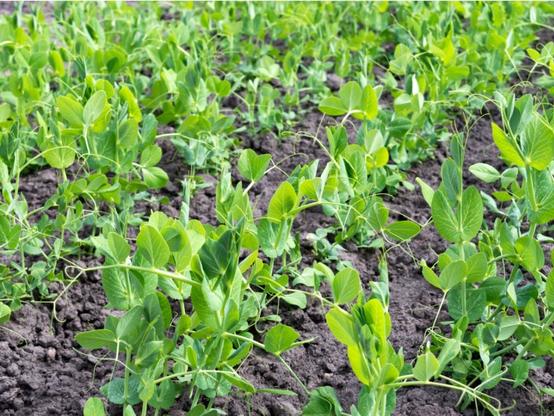
So, I had already picked up some "seed peanuts" from the local feed store (which reminds me -- almost time for seed potatoes and baby onions), and I've grown them in the past. However, I've never tried growing them from store peanuts, so if someone else has, let me know how it worked out. Also, peanuts are another plant that benefits from inoculants -- however, peanut inoculant is different than bean inoculant! (More about inoculants in my next post).
How to Grow Peanuts in Soil from Store-Bought Nuts
Lois Capone by Lois Capone
March 25, 2025
"I’ve always found something magical about growing food from everyday grocery items. Peanuts, in particular, are one of those crops that seem almost too simple to grow, yet many people assume they require a specialized process."
Read more:
https://gardenandcrafty.com/how-to-grow-peanuts
#Gardening #SolarPunkSunday #GrowingPeanuts #Peanuts #GrowYourOwn #FoodSecurity
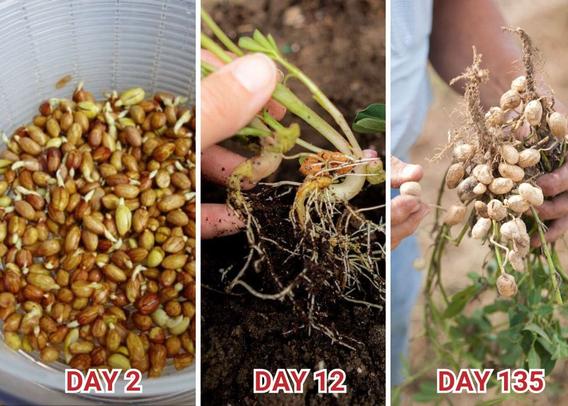
Beans are pretty easy to grow, but they have more yield if an inoculant is used (more on that in another post).
Companion Planting with Beans
26 April 2018, written by Barbara Pleasant
"Fast to mature and easy to grow, beans have several characteristics that make them good partners for other vegetables. They tolerate partial shade, and most beans have tiny hooked hairs on their leaves that entrap aphids and other small insects. Beans can fix nitrogen taken from the air, so they make fewer demands on the soil's nutrient supply compared to other vegetables. Beans also deter weeds with their dense growth both above and below the ground.
"How you use beans as companion plants depends on what you hope to accomplish. High-rise walls of pole beans can be used to provide shade for neighbors that suffer in strong summer sun, while low-growing bush beans can be used as weed-suppressing ground covers between rows of potatoes.
Whether they grow on vines or bushes, you will need good access to beans that are harvested as green or snap beans, which need to be picked every other day when the crop is ready. Dry beans, which are left on the plants until the pods dry to brown, can simply be left to grow, so they are a great option for Native American-inspired Three Sisters plantings comprised of corn, beans, and long-vined winter squash or pumpkins. "
Learn more:
https://www.growveg.com/guides/companion-planting-with-beans/
#Gardening #SolarPunkSunday #CompanionPlanting #Beans #GrowYourOwn #FoodSecurity
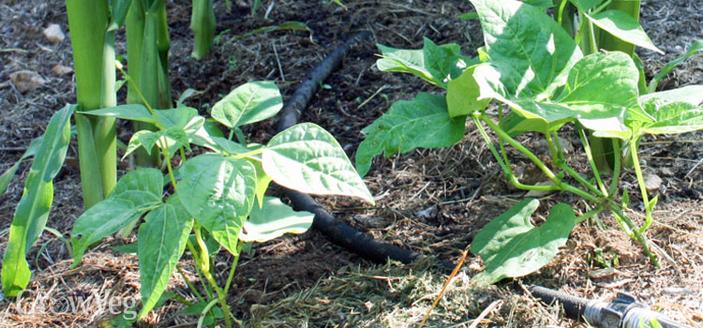
Earth's Storage Of Water In Soil, Lakes And Rivers Is Dwindling - And It's Especially Bad For Farming
--
https://phys.org/news/2025-03-earth-storage-soil-lakes-rivers.html <-- shared technical article
--
https://doi.org/10.1126/science.adq6529 <-- shared paper
--
#water #hydrology #waterresources #global #management #watersecurity #soil #lake #river #snow #groundwater #agriculture #sealevelerise #SLR #climatechange #farming #overuse #waste #moisture #soilmoisture #ecology #ecosystems #storage #model #modeling #spatialanalysis #spatiotemporal #rainfall #drought #consistency #wateruse #crop #plant #vegetation #irrigation #foodsecurity #evapotranspiration #ET #surfacewater #flux #GIS #spatial #mapping #remotesensing #earthobservation #waterstorage #depletion
Very good article in Portuguese regarding food colonialism
The “debt of hunger” that devastates the South
We need to understand how debt captures wealth and dismantles food systems in the global South. Dependent on dollars to pay it off, states give in to extractivism and cut social spending. How can we build a large movement to overturn this form of colonialism?
https://outraspalavras.net/mercadovsdemocracia/a-divida-da-fome-que-devasta-o-sul/
ht www.biodiversidadla.org

How philanthropists are destroying African farms – video https://www.theguardian.com/world/video/2025/apr/03/how-philanthropists-are-destroying-african-farms-video #Climatecrisis #Foodsecurity #Philanthropy #Biodiversity #Agriculture #Farming #Africa #Seeds #Kenya #Food
Africa: Repatriate Africa's Climate-Smart Wisdom That Was Suppressed By Colonialism.: [African Union] The urgency of climate change compels us to revisit lost wisdom in the African Agricultural Sector. Dr. Ibrahim Assane Mayaki is African Union Special Envoy for Food Systems observes that extreme weather, erratic rainfall, and rising temperatures threaten the staple crops that… http://newsfeed.facilit8.network/TJx2SK #ClimateChange #SustainableAgriculture #FoodSecurity #IndigenousKnowledge #AfricanWisdom
The #nutrition quality of rice—a staple for half the global population—is crucial. Iron deficiency #anemia affects billions, esp. in rice-consuming regions. #Biofortification offers a sustainable solution… (1/2) doi.org/10.5010/JPB.... #foodsecurity #health
CRISPR-enhanced iron accumulat...
Africa: Flying Against Hunger - WFP's UNHAS Delivers in Emergencies: [WFP] The United Nations Humanitarian Air Service is saving lives in places like Madagascar, Haiti and the Central African Republic - even as a funding shortfall bites http://newsfeed.facilit8.network/TJvT5C #Africa #WFP #UNHAS #HumanitarianAid #FoodSecurity
Millions of bees in the U.S. have died over the last 8 months. Bees pollinate 75% of the fruits, nuts and vegetables grown in the country.
#UnitedStates #Ecology #Food #Insects #Bees #Pollination #FoodSecurity #Environment




